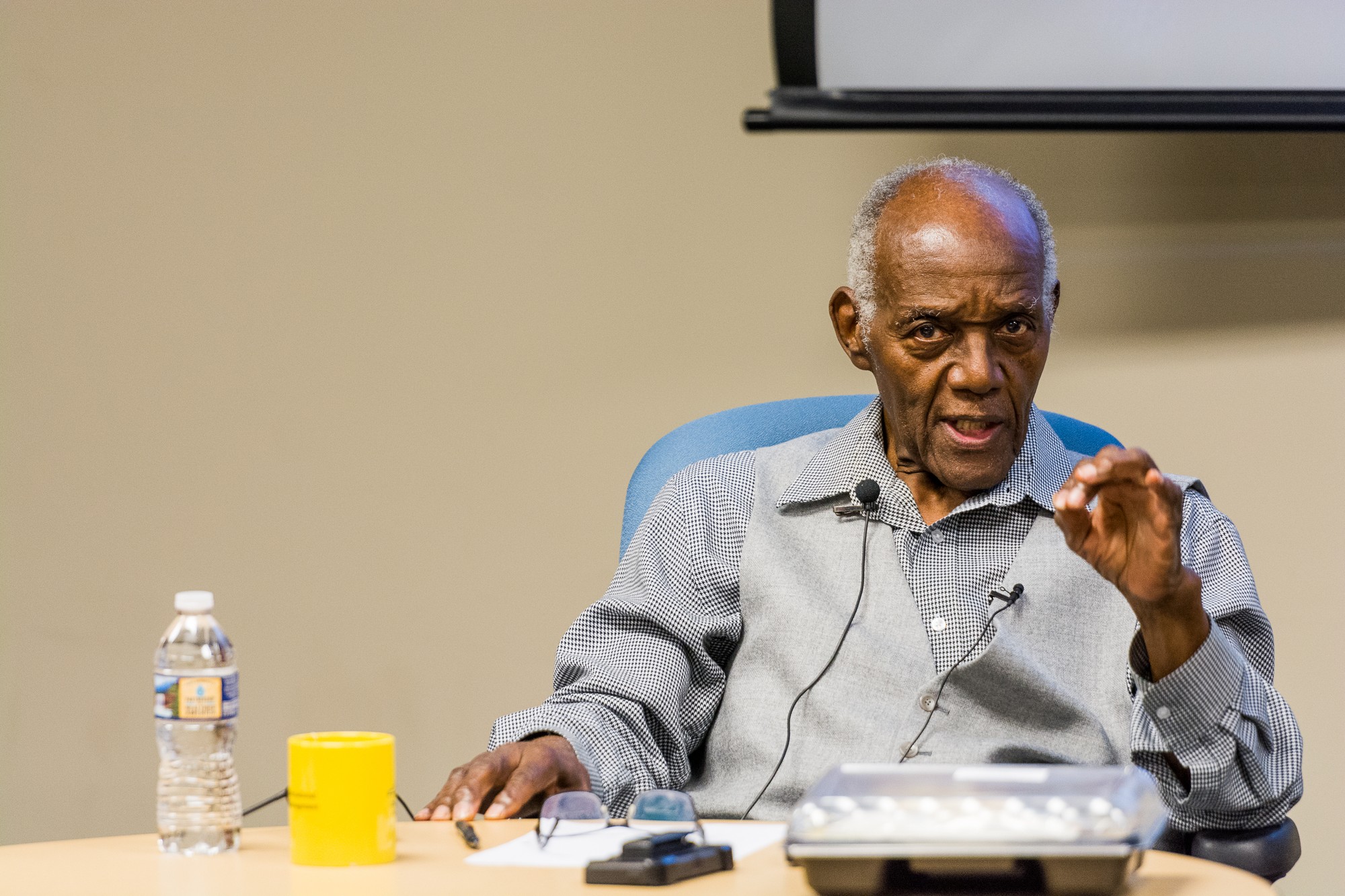Kennesaw State students interested in exploring underrepresented religious ideologies had the opportunity to learn about the Bahá’i faith in an event on Friday, Oct. 19.
Last Friday, KSU Professor of History Gerrit Voogt hosted a screening of a new film titled, “The Gate: The Dawn of the Bahá’i Faith.”
The film tells the true story of the Prophet Báb, the founder of Bábism and the beginnings of the religion.
“The reason why they’re coming out with this movie this year is because the Báb was born in 1819, so next year will be the bicentenary of his birth, and the Prophet Baha’u’llah, the founder of the Bahá’i faith, was born in 1817 so it’s right in between those two dates,” Voogt said.
The documentary features interviews with experts on religious movements and influential members of the faith such as actor Rainn Wilson, who played Dwight Schrute in “The Office.” The documentary also features Layli Miller-Muro, founder and CEO of the Tahirih Justice Center, an American organization advocating for the rights of women.
“The Gate” was filmed primarily in Spain because of the intricate architecture and because they could not film in Iran due to the persecution of the Bahá’i faith.
By screening “The Gate,” Voogt hopes to educate those only vaguely familiar with the Bahá’i faith and those who have not even heard of the faith in the first place.
“It’s not meant to be converting anybody,” Voogt said. “It’s just meant to get the word out so that people have an idea of what this faith is about.”
After the screening of the film, there was an informal discussion for those who wanted more information on the religion.
The Bahá’i faith operates on the principles of unity of all mankind and independent investigation, which means seeking the truth for yourself. Another idea central to the faith is that of progressive revelation or the idea that new incarnations of God come every few hundred years to share spiritual truths with humanity. Followers of Bahá’i believe that such incarnations include Jesus, Muhammad, Buddha and the Báb.
A major aspect of the faith is that since around some time after its origin, it has advocated for the equality of men and women, which at the time was believed to be a radical idea.
“At the time, all women in Persia were veiled and were second-class citizens,” Voogt said. “One of the early followers of the Báb was a woman named Tahirih who declared that under the new faith women will be the equals of men and before her execution said you may kill me, but you’ll never be able to stop the emancipation of women.”
Unfortunately, many Bahá’i practitioners are forced to seek emancipation themselves because of the country’s blasphemy law.
“The Bahá’i are heavily persecuted in Iran,” Voogt said. “Bahá’i is the largest minority religion in Iran today. If they think you’re a Bahá’i then you can’t go to college.”
The Bahá’i community at KSU consists of only a handful of students who are part of the faith, but in Cobb County, there are a few larger Bahá’i communities.
More information on “The Gate: The Dawn of the Bahá’i Faith” can be found on the film’s official website.



